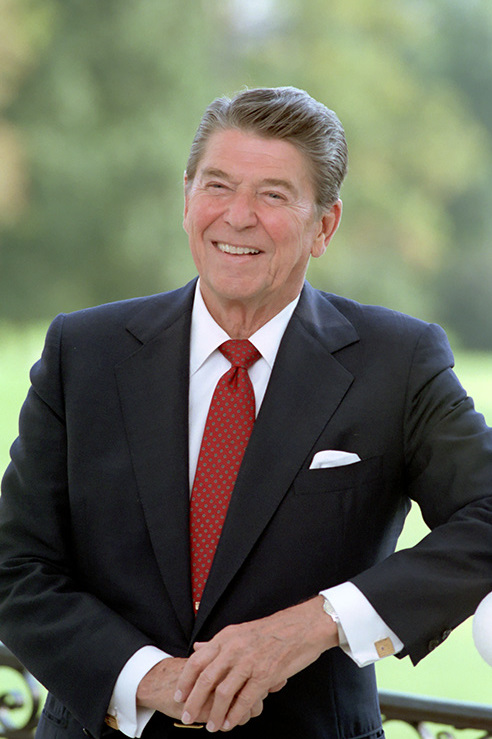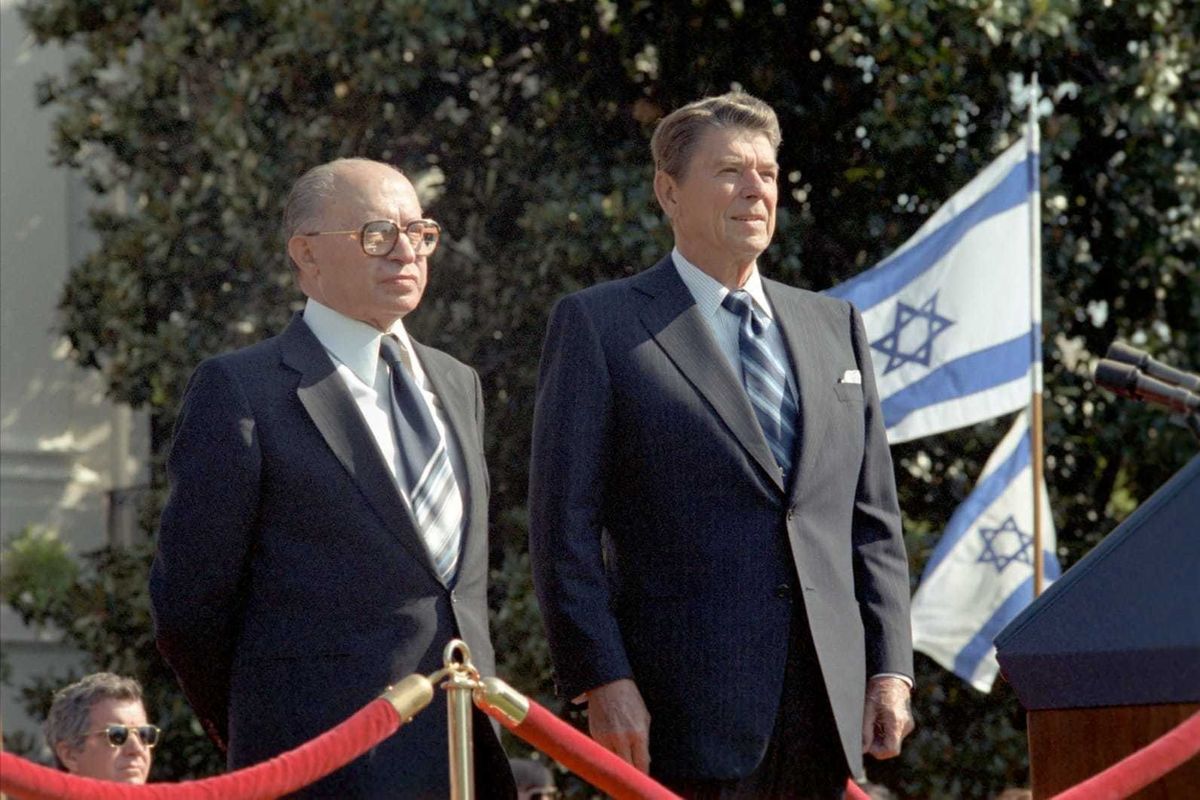Ronald Reagan: The Legacy of a Transformative Leader
Introduction:
Ronald Reagan, the 40th President of the United States, remains an enduring figure in American political history. His presidency, spanning from 1981 to 1989, was marked by a fervent commitment to conservative principles, economic reforms, and a robust foreign policy stance. Reagan's leadership style, characterized by optimism, charisma, and unwavering conviction, continues to shape the political landscape of the United States decades after his tenure. This essay delves into Reagan's life, his presidency, and his lasting impact on American politics and society.
Early Life and Rise to Power:
Ronald Wilson Reagan was born on February 6, 1911, in Tampico, Illinois. Raised in a modest family, he developed a strong work ethic and a passion for storytelling from an early age. After graduating from Eureka College, Reagan pursued a career in radio broadcasting and later transitioned to Hollywood, where he achieved success as an actor.
Reagan's foray into politics began in earnest in the 1960s when he shifted his focus from entertainment to public service. As a staunch conservative, he emerged as a prominent spokesman for the Republican Party, delivering impassioned speeches that resonated with many Americans disillusioned by the tumultuous events of the era. Reagan's charisma and communication skills propelled him into the governorship of California in 1967, where he served two terms and implemented policies that reflected his conservative ideology.
Presidential Years:
In 1980, Ronald Reagan secured the Republican nomination for president and went on to defeat the incumbent, Jimmy Carter, in a landslide victory. His inaugural address, with its iconic phrase "government is not the solution to our problem; government is the problem," set the tone for his presidency. Reagan's overarching goal was to reduce the size and scope of the federal government, promote free-market capitalism, and restore America's standing on the world stage.
One of Reagan's most notable domestic initiatives was his economic policy, famously dubbed "Reaganomics." Central to this approach was supply-side economics, which advocated for tax cuts, deregulation, and limited government intervention in the economy. Despite initial skepticism, Reagan's economic reforms ushered in a period of sustained economic growth, characterized by lower inflation, decreased unemployment, and a resurgence of entrepreneurship.
Reagan's foreign policy doctrine was equally consequential. Faced with the challenges posed by the Cold War, he pursued a strategy of aggressive anti-communism coupled with diplomatic engagement with the Soviet Union. His unwavering stance against the spread of communism earned him praise from conservatives and criticism from his detractors. Nevertheless, Reagan's willingness to confront the Soviet Union, coupled with strategic arms negotiations, contributed to the eventual collapse of the Soviet empire and the end of the Cold War.
Legacy and Impact:
Ronald Reagan's presidency left an indelible mark on American politics and society. His unapologetic conservatism galvanized the Republican Party, leading to a realignment of political forces that continues to shape the nation's political landscape. Reagan's emphasis on individual liberty, limited government, and traditional values resonated with millions of Americans, laying the groundwork for the conservative movement that followed.
Moreover, Reagan's economic policies laid the foundation for decades of prosperity, demonstrating the efficacy of free-market principles in driving economic growth. While his critics point to growing income inequality and the ballooning national debt as potential drawbacks of Reaganomics, his supporters argue that the benefits of his policies far outweighed the costs.
On the global stage, Reagan's role in ending the Cold War remains his most enduring legacy. By standing firm against the Soviet Union while simultaneously engaging in diplomatic dialogue, he helped to thaw decades of icy relations between the two superpowers. The fall of the Berlin Wall in 1989 symbolized the triumph of freedom over oppression and solidified Reagan's reputation as a transformative leader on the world stage.
Ronald Reagan's presidency was a defining era in American history, marked by conservative resurgence, economic revitalization, and the end of the Cold War. His leadership style, characterized by optimism, conviction, and a steadfast commitment to principles, continues to inspire generations of Americans. While his legacy remains the subject of debate, there is no denying the profound impact he had on the United States and the world. As the nation grapples with new challenges and opportunities, the lessons of Reagan's presidency remain relevant, reminding us of the enduring power of visionary leadership and the boundless potential of the American spirit.:max_bytes(150000):strip_icc():focal(399x0:401x2)/nancy-ron-1-800-a8c533b27a7d46baad8a1ec6c49f467d.jpg) Reagan's presidency was not without its controversies and criticisms. His administration faced scrutiny for its handling of issues such as the AIDS epidemic, environmental regulations, and the Iran-Contra affair. Critics argue that Reagan's policies exacerbated social inequalities and environmental degradation while his administration's involvement in covert operations raised ethical and legal questions.
Reagan's presidency was not without its controversies and criticisms. His administration faced scrutiny for its handling of issues such as the AIDS epidemic, environmental regulations, and the Iran-Contra affair. Critics argue that Reagan's policies exacerbated social inequalities and environmental degradation while his administration's involvement in covert operations raised ethical and legal questions.
The AIDS epidemic, which emerged in the early 1980s, presented a significant public health challenge during Reagan's presidency. However, his administration was criticized for its slow and inadequate response to the crisis. Many advocates and medical professionals accused Reagan of neglecting the issue due to its association with the exacerbating the spread of the disease and contributing to stigmatization.
Environmental policy was another area where Reagan's approach drew criticism. His administration pursued deregulation and prioritized economic interests over environmental protection, leading to rollbacks of key environmental regulations. Critics argue that these policies had long-term detrimental effects on air and water quality, biodiversity, and public health, undermining progress made in previous decades. The Iran-Contra affair, perhaps the most notorious scandal of Reagan's presidency, involved the clandestine sale of arms to Iran in exchange for the release of hostages and the diversion of proceeds to fund anti-communist rebels in Nicaragua, despite congressional prohibition. The revelations of these covert operations raised serious concerns about presidential overreach, constitutional accountability, and adherence to the rule of law.
The Iran-Contra affair, perhaps the most notorious scandal of Reagan's presidency, involved the clandestine sale of arms to Iran in exchange for the release of hostages and the diversion of proceeds to fund anti-communist rebels in Nicaragua, despite congressional prohibition. The revelations of these covert operations raised serious concerns about presidential overreach, constitutional accountability, and adherence to the rule of law.
Despite these controversies, Reagan's popularity remained strong throughout much of his presidency, fueled by his ability to connect with the American people on a personal level. His optimistic rhetoric, moral clarity, and unwavering confidence in American exceptionalism resonated deeply with many citizens, helping to solidify his status as one of the most beloved presidents in modern American history.:max_bytes(150000):strip_icc()/3163292_HighRes-resize-56a48d5c3df78cf77282f002.jpg) Furthermore, Reagan's enduring legacy extends beyond his policies and accomplishments during his time in office. He left an indelible mark on the Republican Party, shaping its identity and priorities for years to come. His brand of conservatism, often referred to as "Reaganism," continues to influence GOP politics, with many Republican leaders invoking his name and principles to rally support for their agendas.
Furthermore, Reagan's enduring legacy extends beyond his policies and accomplishments during his time in office. He left an indelible mark on the Republican Party, shaping its identity and priorities for years to come. His brand of conservatism, often referred to as "Reaganism," continues to influence GOP politics, with many Republican leaders invoking his name and principles to rally support for their agendas.
In conclusion, Ronald Reagan's presidency was a complex and consequential chapter in American history. His leadership, characterized by conviction, charisma, and an unwavering commitment to conservative principles, transformed the political landscape of the United States and left a lasting imprint on both domestic and international affairs. While his legacy remains the subject of debate and scrutiny, there is no denying the profound impact he had on the nation and the world. As America continues to navigate the challenges of the 21st century, the lessons of Reagan's presidency serve as a reminder of the enduring power of leadership, vision, and the American spirit.














































